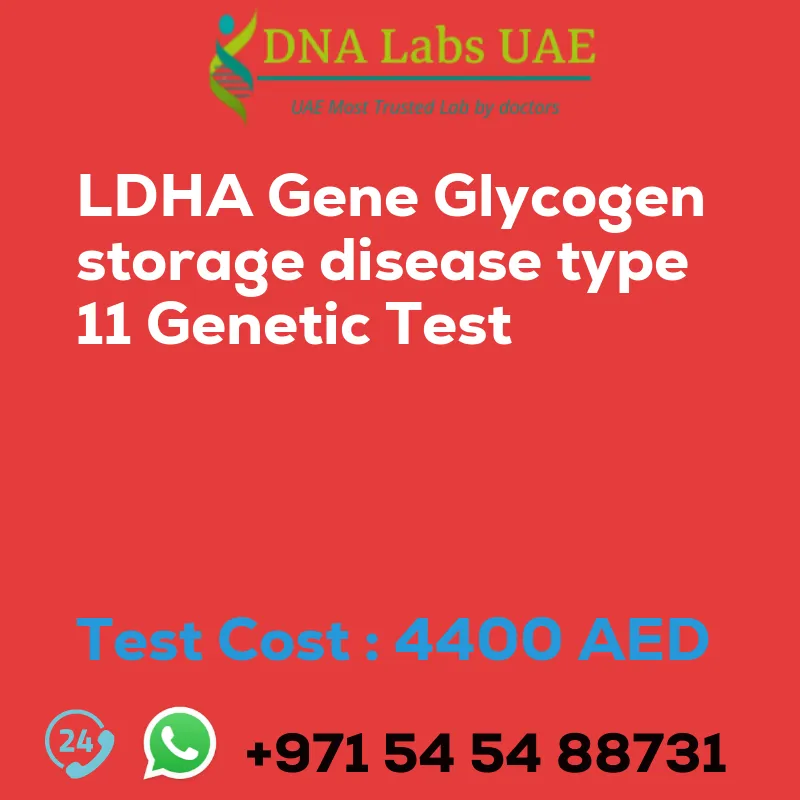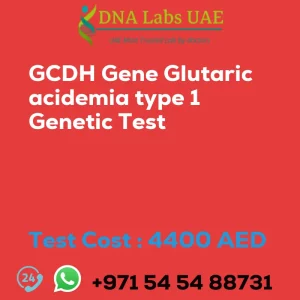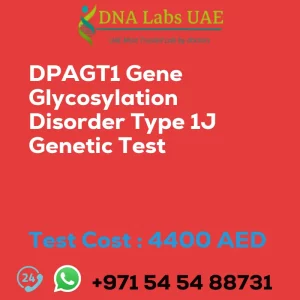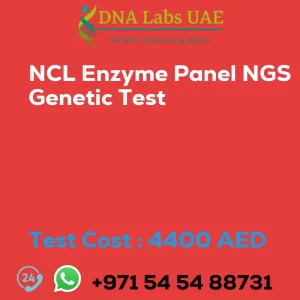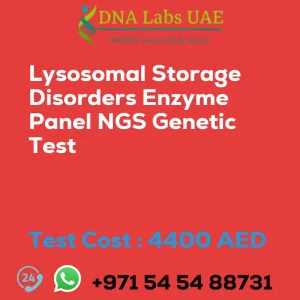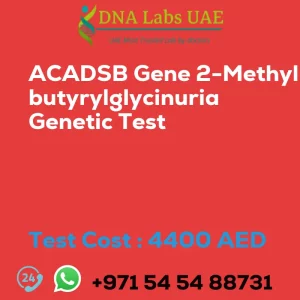LDHA Gene Glycogen Storage Disease Type 11 Genetic Test
Genetic testing for LDHA Gene Glycogen Storage Disease Type 11 is available at DNA Labs UAE. This test can help diagnose and provide information about the specific genetic mutations involved in this rare genetic disorder. The cost of the test is AED 4400.0.
Test Components
- Price: 4400.0 AED
- Sample Condition: Blood or Extracted DNA or One drop Blood on FTA Card
- Report Delivery: 3 to 4 Weeks
- Method: NGS Technology
- Test Type: Metabolic Disorders
- Doctor: General Physician
- Test Department: Genetics
Pre Test Information
Prior to undergoing the LDHA Gene Glycogen Storage Disease Type 11 Genetic Test, it is important to provide the clinical history of the patient. Additionally, a genetic counseling session may be conducted to draw a pedigree chart of family members affected by Glycogen Storage Disease Type 11.
Test Details
The LDHA gene is responsible for encoding the enzyme lactate dehydrogenase A, which is crucial for the conversion of glucose to lactate during anaerobic glycolysis. Mutations in the LDHA gene can lead to Glycogen Storage Disease Type 11, also known as GSD11 or glycogenosis type XI. This rare autosomal recessive disorder is characterized by the accumulation of glycogen in various tissues, particularly in the liver and muscles.
Individuals with GSD11 may experience symptoms such as muscle weakness, exercise intolerance, fatigue, hepatomegaly (enlarged liver), and elevated levels of lactate in the blood.
NGS (Next-Generation Sequencing) genetic testing is a high-throughput sequencing method that can analyze multiple genes simultaneously. In the context of GSD11, NGS genetic testing can identify mutations in the LDHA gene, providing a definitive diagnosis for individuals suspected of having the condition.
To perform the NGS genetic test, a DNA sample is obtained from the patient, typically through a blood sample or saliva sample. The DNA is then sequenced using NGS technology, generating a large amount of sequencing data. This data is analyzed to identify any genetic variants or mutations in the LDHA gene that may be causing GSD11.
The results of the NGS genetic test can confirm a diagnosis of GSD11 and provide information about the specific genetic mutations involved. This information is valuable for genetic counseling, family planning, and potentially guiding treatment decisions.
It is important to note that genetic testing for GSD11 should be done under the guidance of a healthcare professional or genetic counselor. They can provide appropriate pre-test counseling, explain the implications of the test results, and offer support and guidance throughout the testing process.
| Test Name | LDHA Gene Glycogen storage disease type 11 Genetic Test |
|---|---|
| Components | |
| Price | 4400.0 AED |
| Sample Condition | Blood or Extracted DNA or One drop Blood on FTA Card |
| Report Delivery | 3 to 4 Weeks |
| Method | NGS Technology |
| Test type | Metabolic Disorders |
| Doctor | General Physician |
| Test Department: | Genetics |
| Pre Test Information | Clinical History of Patient who is going for LDHA Gene Glycogen storage disease type 11 NGS Genetic DNA Test A Genetic Counselling session to draw a pedigree chart of family members affected with Glycogen storage disease type 11 |
| Test Details |
The LDHA gene is responsible for encoding the enzyme lactate dehydrogenase A, which plays a crucial role in the conversion of glucose to lactate during anaerobic glycolysis. Mutations in the LDHA gene can lead to a rare genetic disorder called glycogen storage disease type 11, also known as GSD11 or glycogenosis type XI. GSD11 is an autosomal recessive disorder characterized by the accumulation of glycogen in various tissues, particularly in the liver and muscles. This accumulation of glycogen can lead to a wide range of symptoms, including muscle weakness, exercise intolerance, fatigue, hepatomegaly (enlarged liver), and elevated levels of lactate in the blood. NGS (Next-Generation Sequencing) genetic testing is a high-throughput sequencing method that can analyze multiple genes simultaneously. In the context of GSD11, NGS genetic testing can be used to identify mutations in the LDHA gene, providing a definitive diagnosis for individuals suspected of having the condition. NGS genetic testing involves obtaining a DNA sample from the patient, usually through a blood sample or saliva sample. The DNA is then sequenced using NGS technology, which generates large amounts of sequencing data. This data is then analyzed to identify any genetic variants or mutations in the LDHA gene that may be causing GSD11. The results of the NGS genetic test can help confirm a diagnosis of GSD11 and provide information about the specific genetic mutations involved. This information can be useful for genetic counseling, family planning, and potentially guiding treatment decisions. It’s important to note that genetic testing for GSD11, like any other genetic test, should be done under the guidance of a healthcare professional or genetic counselor who can provide appropriate pre-test counseling, explain the implications of the test results, and offer support and guidance throughout the testing process. |

